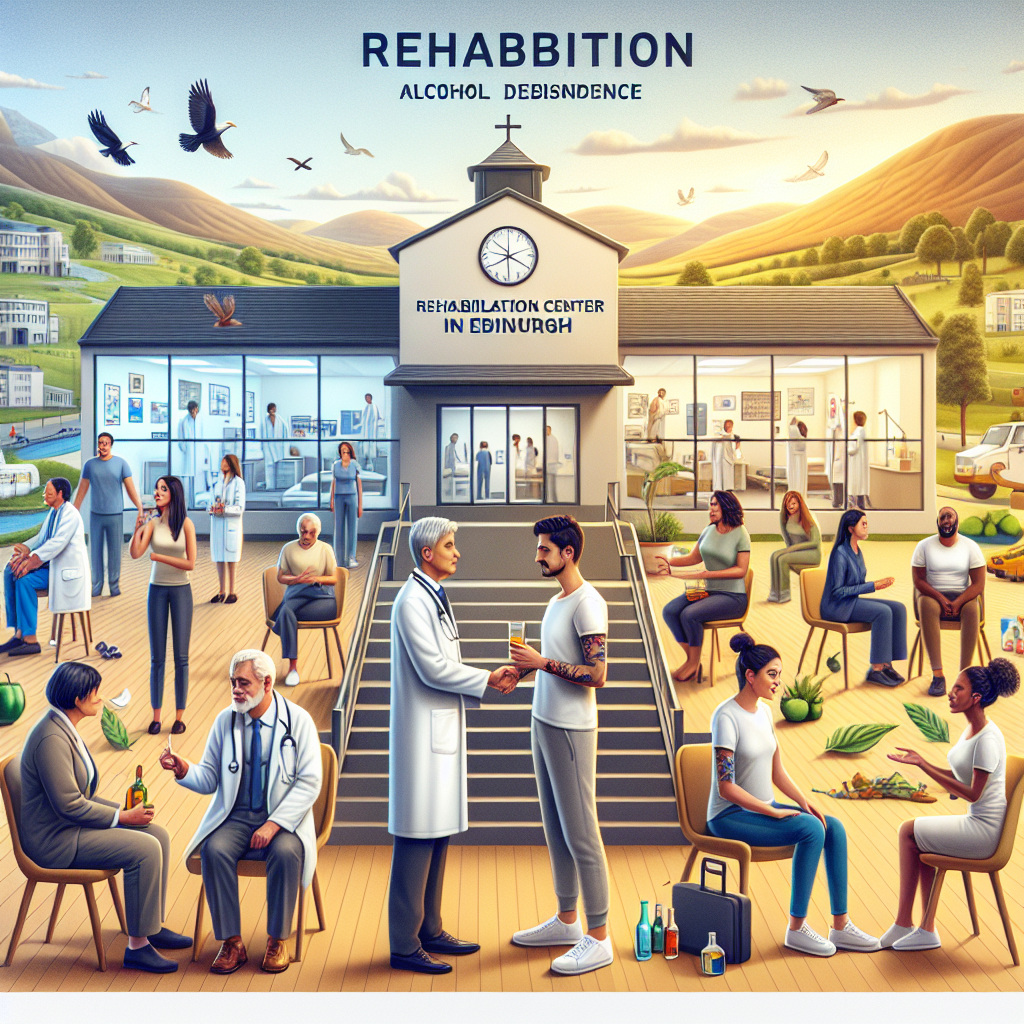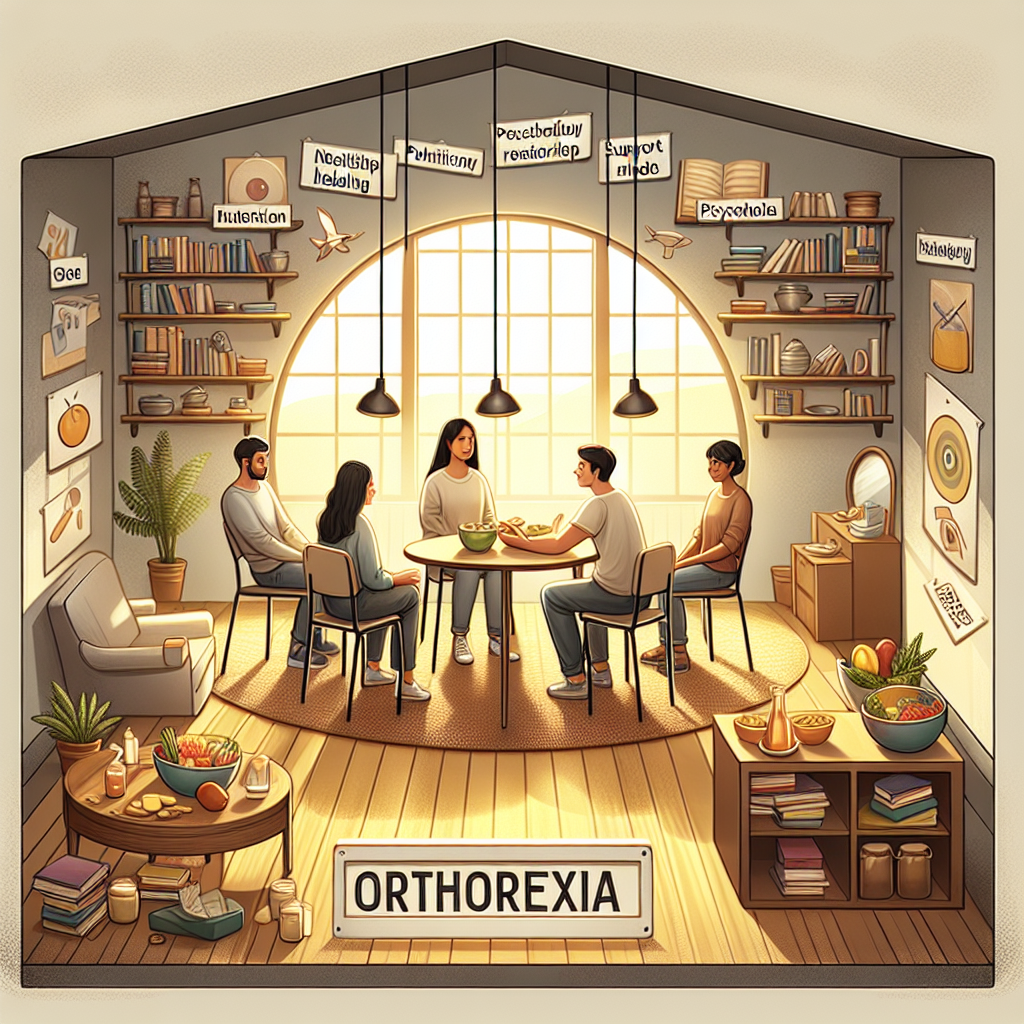-
Table of Contents

“Reclaim Your Life: Comprehensive, Compassionate Alcohol Rehab in Edinburgh”
Introduction
Rehabilitation for alcohol dependence in Edinburgh offers a comprehensive and structured approach to recovery, tailored to meet the unique needs of each individual. Patients can expect a combination of medical detoxification, psychological therapies, and holistic treatments designed to address both the physical and emotional aspects of addiction. The process typically begins with an assessment to develop a personalized treatment plan, followed by a medically supervised detox to manage withdrawal symptoms safely. Therapy sessions, including cognitive-behavioral therapy (CBT) and group counseling, are integral to addressing the underlying causes of addiction and developing coping strategies. Additionally, rehab centers in Edinburgh often provide aftercare support to help individuals maintain sobriety and prevent relapse. The supportive environment, professional care, and comprehensive treatment programs aim to empower individuals to achieve long-term recovery and improve their overall quality of life.
Comprehensive Treatment Approaches in Edinburgh Rehab Centers for Alcohol Dependence
Rehabilitation centers in Edinburgh offer a comprehensive and holistic approach to treating alcohol dependence, ensuring that individuals receive the support and care they need to embark on a journey toward recovery. These centers are equipped with a range of treatment modalities designed to address the physical, psychological, and emotional aspects of addiction, providing a well-rounded path to sobriety.
Upon entering a rehab center in Edinburgh, individuals can expect to undergo a thorough assessment. This initial evaluation is crucial as it helps the medical and therapeutic team to understand the extent of the alcohol dependence and any co-occurring mental health issues. With this information, a personalized treatment plan is crafted, tailored to meet the unique needs of each individual. This bespoke approach ensures that the treatment is as effective as possible, addressing the root causes of addiction and paving the way for long-term recovery.
Detoxification is often the first step in the treatment process. This medically supervised phase helps individuals safely withdraw from alcohol, managing the physical symptoms of withdrawal with the support of healthcare professionals. The detox process can be challenging, but with the compassionate care provided in Edinburgh rehab centers, individuals are guided through it with dignity and respect. The goal is to stabilize the individual and prepare them for the next stages of treatment.
Following detoxification, therapy becomes a central component of the rehabilitation process. Edinburgh rehab centers offer a variety of therapeutic approaches, including individual counseling, group therapy, and family therapy. Individual counseling provides a safe space for individuals to explore the underlying issues that contribute to their alcohol dependence. Through one-on-one sessions with a trained therapist, individuals can develop coping strategies and gain insights into their behavior patterns.
Group therapy, on the other hand, offers the opportunity to connect with others who are experiencing similar challenges. Sharing experiences and learning from peers can be incredibly empowering, fostering a sense of community and mutual support. Family therapy is also an integral part of the treatment process, as it helps to repair and strengthen relationships that may have been strained by addiction. Involving family members in the recovery process can provide a strong support system, which is essential for sustained sobriety.
In addition to traditional therapeutic approaches, many rehab centers in Edinburgh incorporate holistic treatments into their programs. These may include mindfulness practices, yoga, art therapy, and other activities that promote overall well-being. Such holistic treatments aim to heal the mind, body, and spirit, offering a more comprehensive approach to recovery. By engaging in these activities, individuals can discover new ways to manage stress and find joy in sober living.
Education is another key component of the rehabilitation process. Rehab centers in Edinburgh provide educational sessions that inform individuals about the nature of addiction, the impact of alcohol on the body and mind, and strategies for maintaining sobriety. Knowledge is power, and by understanding the complexities of addiction, individuals are better equipped to navigate their recovery journey.
After completing the initial phases of treatment, aftercare planning becomes essential. Edinburgh rehab centers emphasize the importance of continued support and provide resources for ongoing care. This may include outpatient therapy, support groups, and sober living arrangements. The transition from rehab to everyday life can be daunting, but with a solid aftercare plan, individuals can continue to build on the progress they have made.
In conclusion, rehab centers in Edinburgh offer a comprehensive and compassionate approach to treating alcohol dependence. Through personalized treatment plans, a combination of therapeutic and holistic approaches, and a strong emphasis on aftercare, these centers provide individuals with the tools and support they need to achieve lasting recovery. The journey to sobriety is challenging, but with the right support, it is entirely possible to reclaim a life of health and happiness.
Life After Rehab: Transitioning from Alcohol Dependence Treatment in Edinburgh
Transitioning from alcohol dependence treatment in Edinburgh to life after rehab can be both an exhilarating and daunting experience. The journey to sobriety is a significant achievement, and the support systems in place in Edinburgh are designed to help individuals maintain their newfound freedom from alcohol. As you step out of the structured environment of rehab, it is essential to understand what to expect and how to navigate this new chapter of your life.
One of the first things to anticipate is the continuation of support through aftercare programs. These programs are crucial as they provide a safety net, ensuring that you do not feel alone in your journey. Aftercare in Edinburgh often includes regular counseling sessions, support group meetings, and access to resources that can help you manage triggers and stressors. Engaging in these programs can significantly enhance your ability to stay sober, as they offer a sense of community and shared experience.
Moreover, building a strong support network is vital. This network can include family, friends, and peers who understand your journey and can offer encouragement and accountability. In Edinburgh, there are numerous support groups such as Alcoholics Anonymous (AA) that provide a platform for sharing experiences and gaining insights from others who have walked a similar path. These groups can be a source of strength and motivation, helping you to stay focused on your goals.
Another important aspect of life after rehab is developing healthy routines and habits. Structure can be incredibly beneficial in maintaining sobriety. This might involve setting regular times for meals, exercise, and sleep, as well as finding new hobbies or activities that bring joy and fulfillment. Edinburgh offers a variety of recreational activities, from exploring its historic sites to engaging in outdoor pursuits like hiking in the nearby Pentland Hills. Finding activities that you are passionate about can provide a positive outlet for your energy and help you build a fulfilling life without alcohol.
It is also essential to be mindful of potential triggers and high-risk situations. Identifying these in advance and having a plan to manage them can prevent relapse. This might mean avoiding certain social settings or having a trusted friend accompany you to events where alcohol is present. In Edinburgh, there are many alcohol-free venues and events that you can enjoy, ensuring that your social life remains vibrant and engaging without the need for alcohol.
Furthermore, focusing on your mental and emotional well-being is crucial. The transition from rehab can bring about a range of emotions, from excitement to anxiety. Engaging in regular therapy or counseling can help you process these feelings and develop coping strategies. Mindfulness practices, such as meditation and yoga, can also be beneficial in maintaining emotional balance and reducing stress.
Lastly, it is important to celebrate your progress and acknowledge your achievements. Recovery is a continuous journey, and every milestone, no matter how small, is worth celebrating. Reflecting on how far you have come can provide motivation to keep moving forward.
In conclusion, transitioning from alcohol dependence treatment in Edinburgh to life after rehab involves a combination of continued support, building a strong network, developing healthy routines, managing triggers, focusing on mental well-being, and celebrating progress. With the right strategies and resources, you can navigate this new chapter with confidence and optimism, embracing a life of sobriety and fulfillment.
Q&A
1. **Question:** What types of therapies are commonly offered in rehab centers in Edinburgh for alcohol dependence?
**Answer:** Rehab centers in Edinburgh for alcohol dependence commonly offer therapies such as Cognitive Behavioral Therapy (CBT), group therapy, individual counseling, and holistic therapies like yoga and meditation.
2. **Question:** What is the typical duration of a rehab program for alcohol dependence in Edinburgh?
**Answer:** The typical duration of a rehab program for alcohol dependence in Edinburgh can range from 28 days to 90 days, depending on the severity of the addiction and the specific needs of the individual.
Conclusion
Rehab in Edinburgh for alcohol dependence typically offers a comprehensive approach that includes medical detoxification, individual and group therapy, and aftercare planning. Patients can expect a structured environment with professional support aimed at addressing both the physical and psychological aspects of addiction. The programs often incorporate evidence-based treatments, such as cognitive-behavioral therapy and motivational interviewing, alongside holistic therapies like mindfulness and exercise. The goal is to equip individuals with the tools and strategies needed for long-term recovery and to help them reintegrate into society with a reduced risk of relapse.



